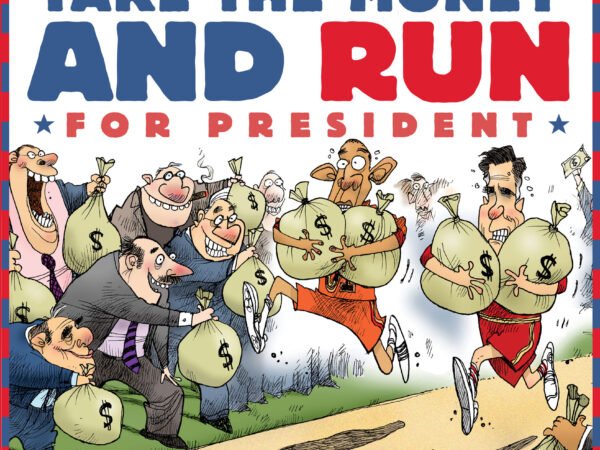In the sprawling, sun-drenched lawns of Mar-a-Lago, amidst the swaying palm trees and manicured gardens, one could almost imagine a scene unfolding that seems as surreal as it is humorously poignant. Picture this: former President Donald Trump, beset by reported financial troubles so grave his lawyers express difficulty in raising $500 million amid mounting legal challenges, decides to host an unprecedented yard sale.
This isn’t your average weekend bargain hunt; it’s a spectacle woven with threads of satire and reality, reflecting not just on Trump’s personal predicaments but also on broader societal issues. Through this imaginative scenario, we delve into the complexities of fame, power dynamics, and economic struggles with empathy and insight.
At first glance, items for sale might seem absurdly extravagant — Barron Trump’s oversized shoes carrying price tags that would make even luxury shoppers blush per shoe. But look closer. Isn’t there something inherently human about trying to salvage what one can from the ruins? Even if those ruins are gilded and the salvage involves tanning beds (goggles included), each item tells a story of peaks reached and valleys fallen into.
The humor escalates when imagined negotiations over these high-ticket items take place. Picture Trump himself haggling over prices only to be undercut at every turn — a metaphor for how quickly fortunes can change in America’s unforgiving economic landscape. It’s a reminder that today’s titan could be tomorrow’s yard sale host.
Then enters Hunter Biden — or rather an imagined version thereof — questioning asset inflation tactics reminiscent of those used by his father Joe Biden. This twist introduces another layer to our narrative: the complicated relationship between personal actions and public perception in political dynasties. It highlights how easily public figures become caricatures through which society discusses its own flaws and contradictions.
Through this satirical lens involving yard sales at opulent estates and exaggerated characterizations of political figures negotiating over improbable goods, we’re invited to reflect on deeper truths about wealth disparity, accountability in leadership positions, and the American Dream itself – all within accessible comedic narratives.
Yet beyond laughter lies empathy for those caught up in these stories – because behind every joke about oversized shoes or tanning beds are real people grappling with their circumstances in ways they never expected. This blend of satire with genuine concern invites readers not just to mock or dismiss but to understand different perspectives within complex real-world issues.
As fanciful as our Mar-a-Lago yard sale may be, it serves as a mirror held up to society – asking us to consider what values we champion and challenge when power shifts hands or fortune fades away. Through humor comes an opportunity for reflection; through imagination opens pathways towards empathy.
In essence, while tales like these entertain us with their wit and inventiveness—they also compel us toward deeper contemplation about resilience amidst adversity—and ultimately remind us of our shared humanity regardless of status or stature.

